Apocalipsis is a point-and-click adventure that creeps me the hell out
It's inspired by medieval woodcarvings and has a soundtrack by a Polish metal band called Behemoth.
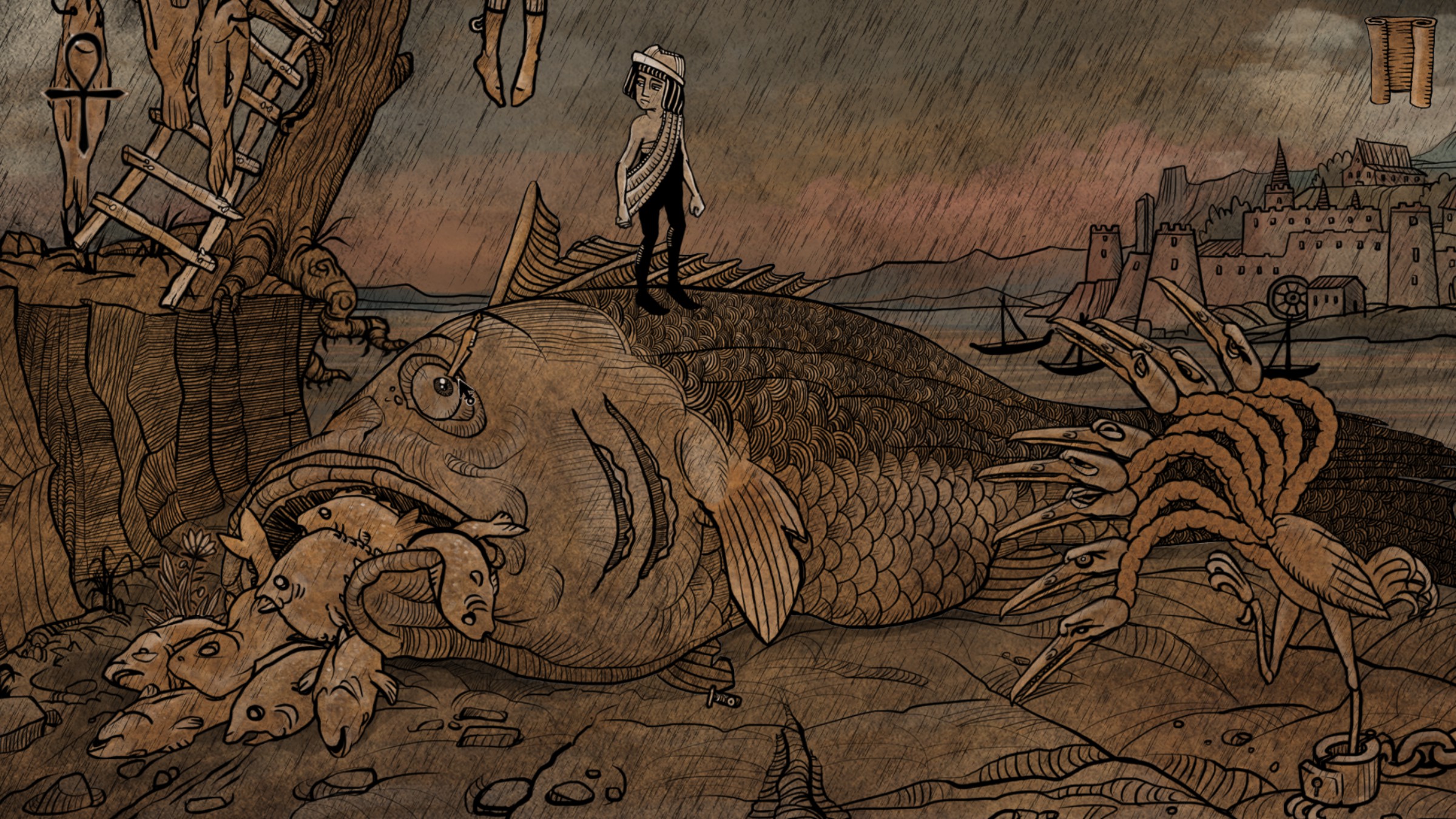
I'm standing on top of a fish the size of a house. It has a knife stuck in its eye. I grab the handle and pull it out because I need the blade to slice up one of the smaller fish the beast is vomiting from its gaping mouth. Eight pieces of fish meat will do, one for each of the heads on the mutated ostrich that's blocking the path ahead. Once it's munched enough fish chunks it stops thrashing and I nip past it onto the next screen, where I outfox a giant rat so that I can catch a ride in a boat captained by a skeleton dressed as a bishop. Naturally.
Eight pieces of fish meat will do, one for each of the heads on the mutated ostrich that's blocking the path ahead.
Apocalipsis is bizarre. Its puzzles are inspired by a series of wood engravings from 15th century Europe, and they're as twisted as anything a medieval artist could muster.
Harry, a young boy, has traveled to another dimension to bring back his first love. He wanders through torture chambers, climbs a hillside using a makeshift ladder made from the ribs of horned beasts washed up on a beach, and plays an organ made entirely from human bones.
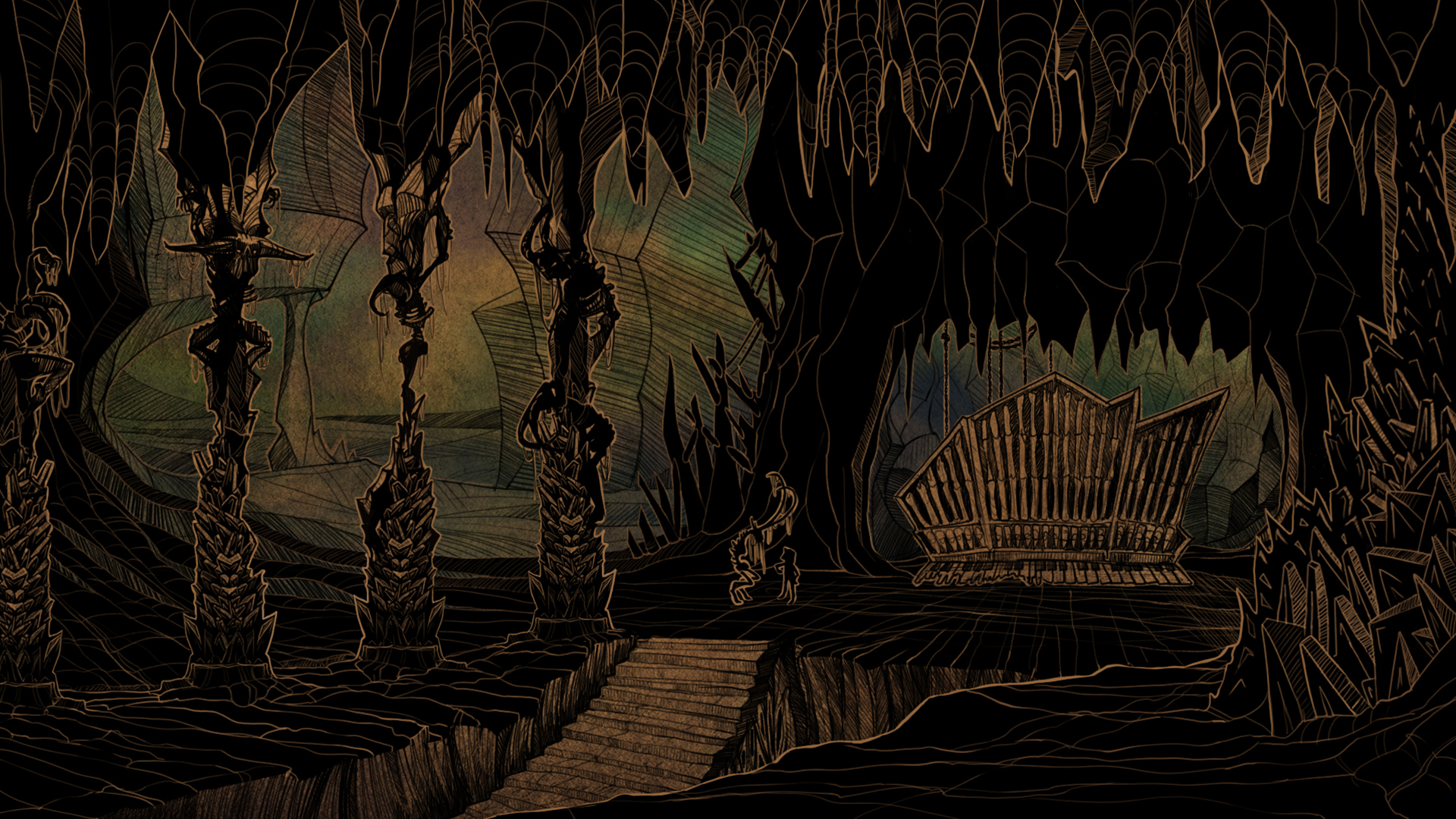
It makes me feel uneasy. The minimalist art style, which will put some people off, means you're spared the gory detail, but there's something unnerving about how unrelated it all is. It's like 10 chapters from 10 different horror books stapled together. Coherent it is not, but that means you never know what abomination is waiting on the next screen.
The music, from Polish metal band Behemoth, wouldn't sound out of place in a horror game
It doesn't ever explain itself, either. Harry's story, narrated between puzzles, tells you why he wants to press on through this nightmare, but it doesn't tell you how or why the nightmare exists in the first place. Why is there a man with no head and a giant face on his torso? Why has that same man put a cow in a harness and winched it up on a wooden frame? You're left to make up your own answers.
The way the other characters shrug off Harry's presence is another source of disquiet. A young boy should seem out of place in a torture chamber, for example. But the hooded torturer doesn't mind when you walk up and admire the way he's slowly ripping a man's body apart on a breaking wheel, nor when you less-than-subtly slip something into his drink, which he duly takes a swig of, allowing you to steal his keys.
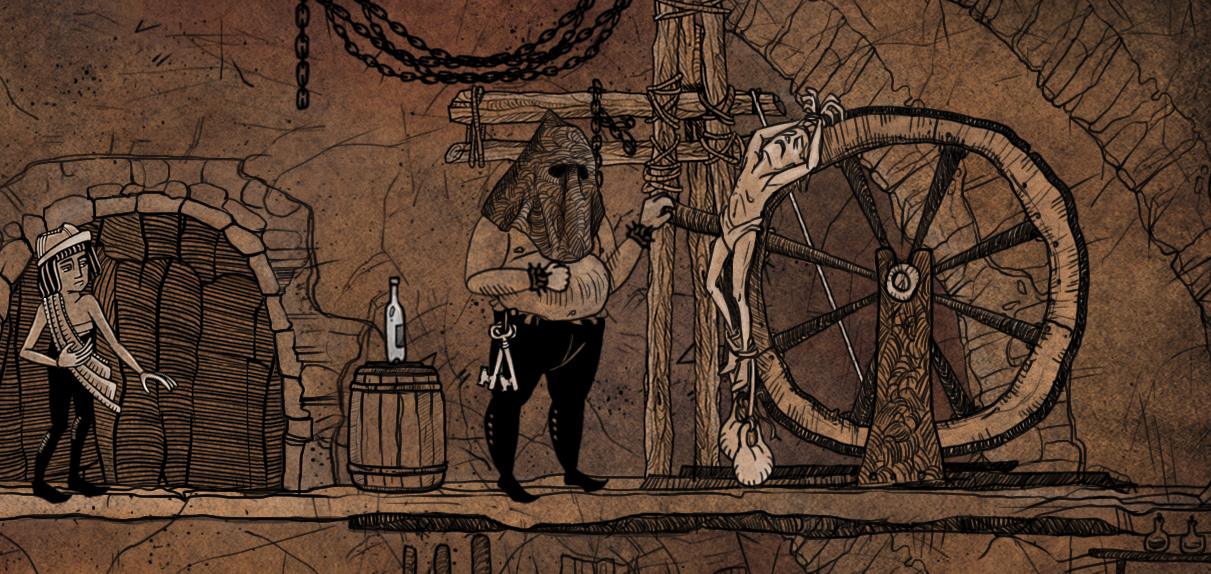
Harry creeps me out too. He's unaffected by the horrors around him. When you've found the exit to the dungeon, he doesn't bother looking back at the groaning men and women, some of whom have begun to rot away in their cramped cages. He just swoops off to his next task, which is to blow up three buildings in a city with a long-range cannon. Again, no explanation, but you're expected to do it anyway. I half-expected a Dark Ages version of Andrew Ryan to enter stage right, asking me if I'd kindly just flick that lever and murder all the innocent people presumably going about their everyday lives inside those buildings.
Keep up to date with the most important stories and the best deals, as picked by the PC Gamer team.
And while he's ordinary-looking at first glance, Harry's fingers are slightly too long in a way that reminds me of Salad Fingers, the creepy flash animation series. It sets my teeth on edge every time he swipes an object from the ground. His gait is bandy-legged and his knees wobbly, as if his bones are bending with every step and might break at any second.
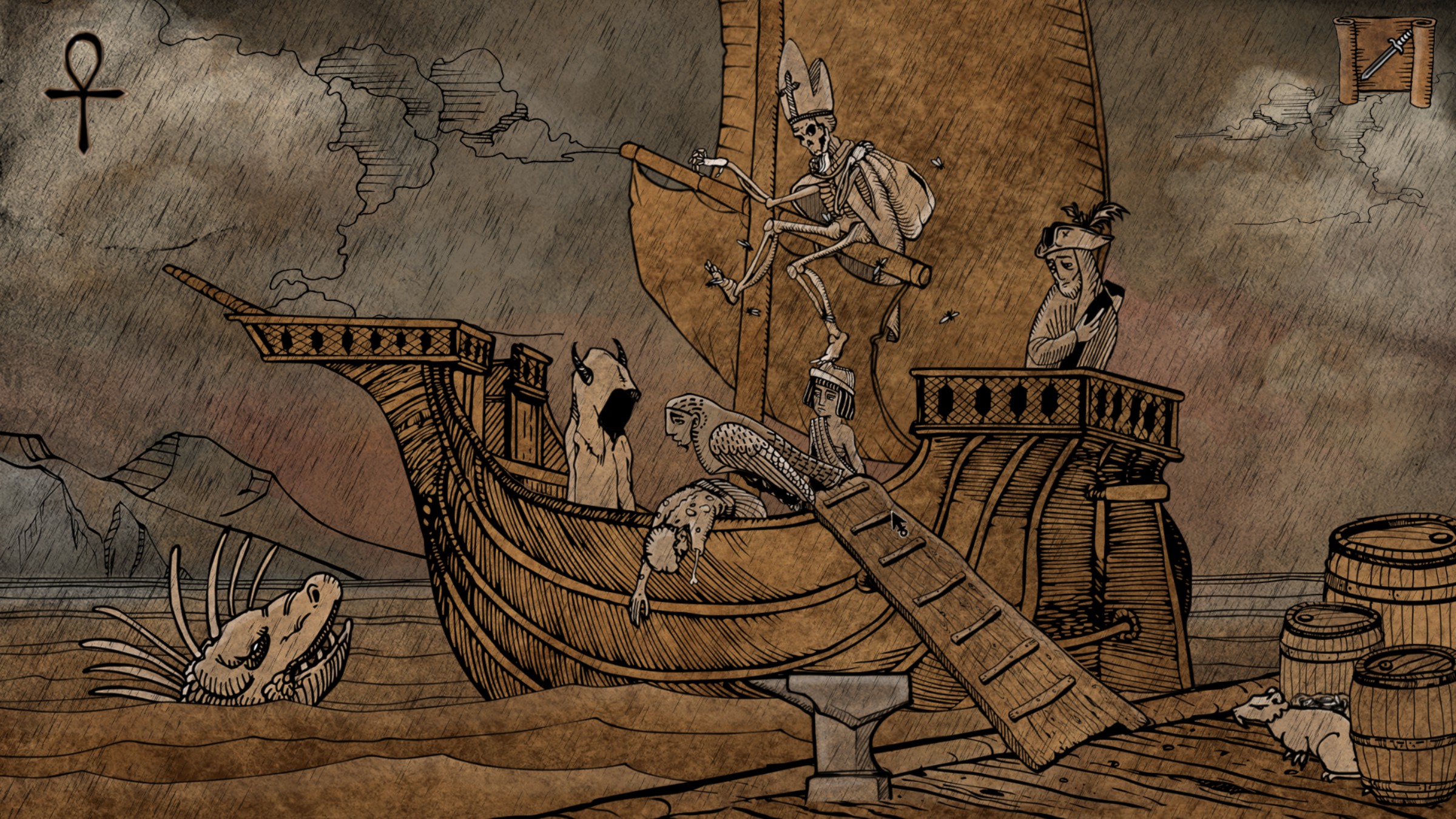
Apocalipsis lacks polish, and it feels like it was made on a tight budget, but credit to developer Punch Punk Games for piling on the atmosphere. The music, from Polish metal band Behemoth, wouldn't sound out of place in a horror game, with low rumbles interrupted by the kind of sharp stabs that normally accompany jump scares. A lot of the audio is eerily warped, turning a dog's bark into a slow, deep boom, and the narrator sounds like he's standing way too close to the mic, his voice constantly distorting and crackling.
It's not for everybody.
Mechanically, Apocalipsis doesn't quite live up to its setting. Its puzzles are uninspiring—you're picking up a series of objects and combining them in mundane ways. You'll breeze through most sections, and when you don’t it'll probably be down to the game's monotone visuals. The brown overload makes it hard to tell what certain objects are meant to be, especially when they're crammed into your tiny inventory in a corner of the screen.
Harry moves frustratingly slowly too, and the game has a habit of putting important objects just out of view of the camera without indicating that they're there, which can leave you scratching your head for a few minutes until you happen to pull your mouse to the edge of the screen.
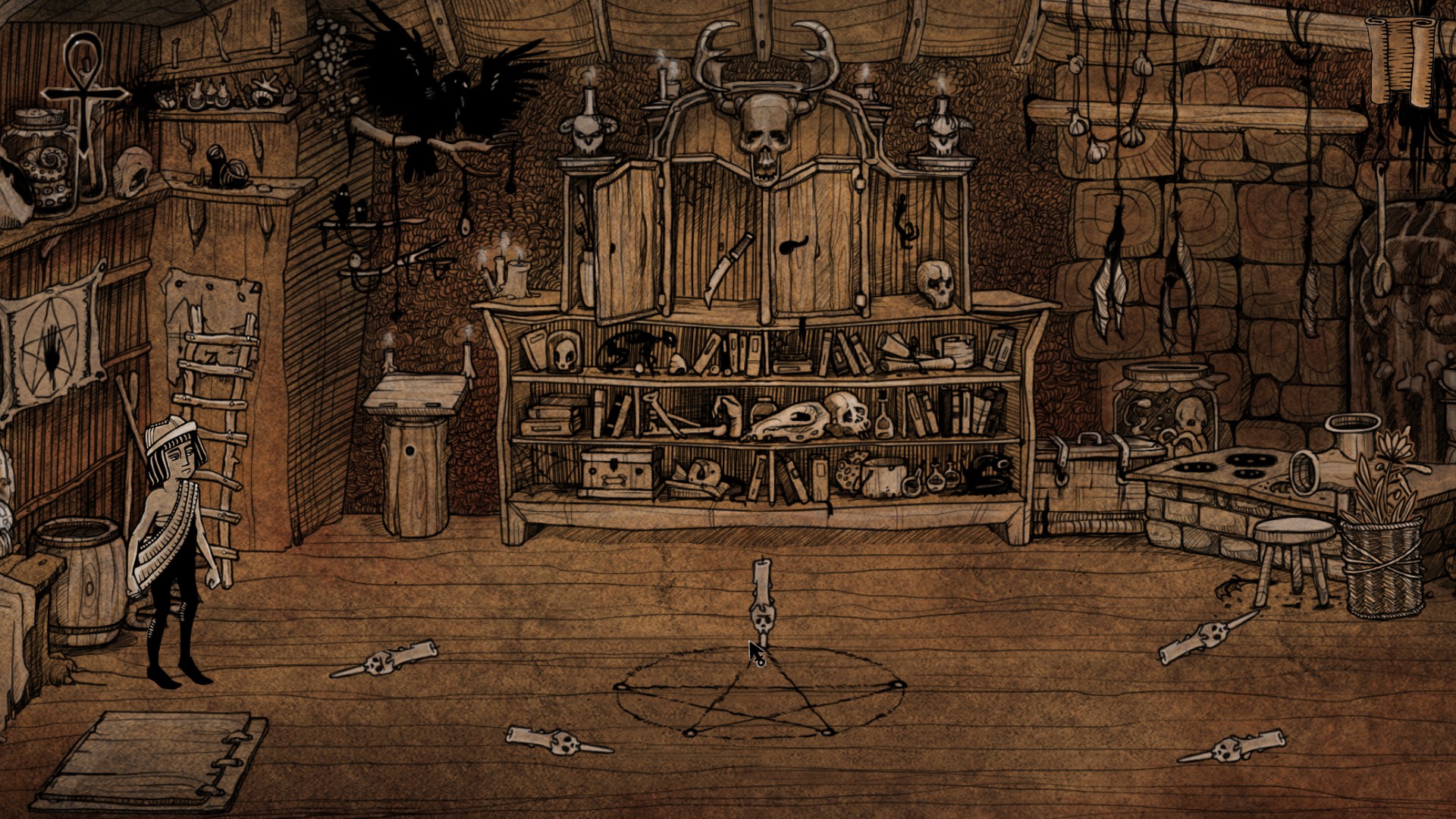
I had to look up the solution to one late-game puzzle, and I'm still not sure how I was meant to figure it out. And then there are two dreadful action sequences in which you move Harry left and right to dodge cannon fire or the flailing legs of a giant squid. Thankfully they're short, but they feel completely out of place, and I can only imagine that the developers squished them in for the sake of mixing things up.
It's not for everybody. Maybe the plain, static environments are a deal-breaker. If you're looking for a point-and-click to make you feel clever, this isn't it. But if surrealism is your thing, then Apocalipsis's haunting world is waiting.
Apocalipsis is available now on Steam.
Samuel Horti is a long-time freelance writer for PC Gamer based in the UK, who loves RPGs and making long lists of games he'll never have time to play.


